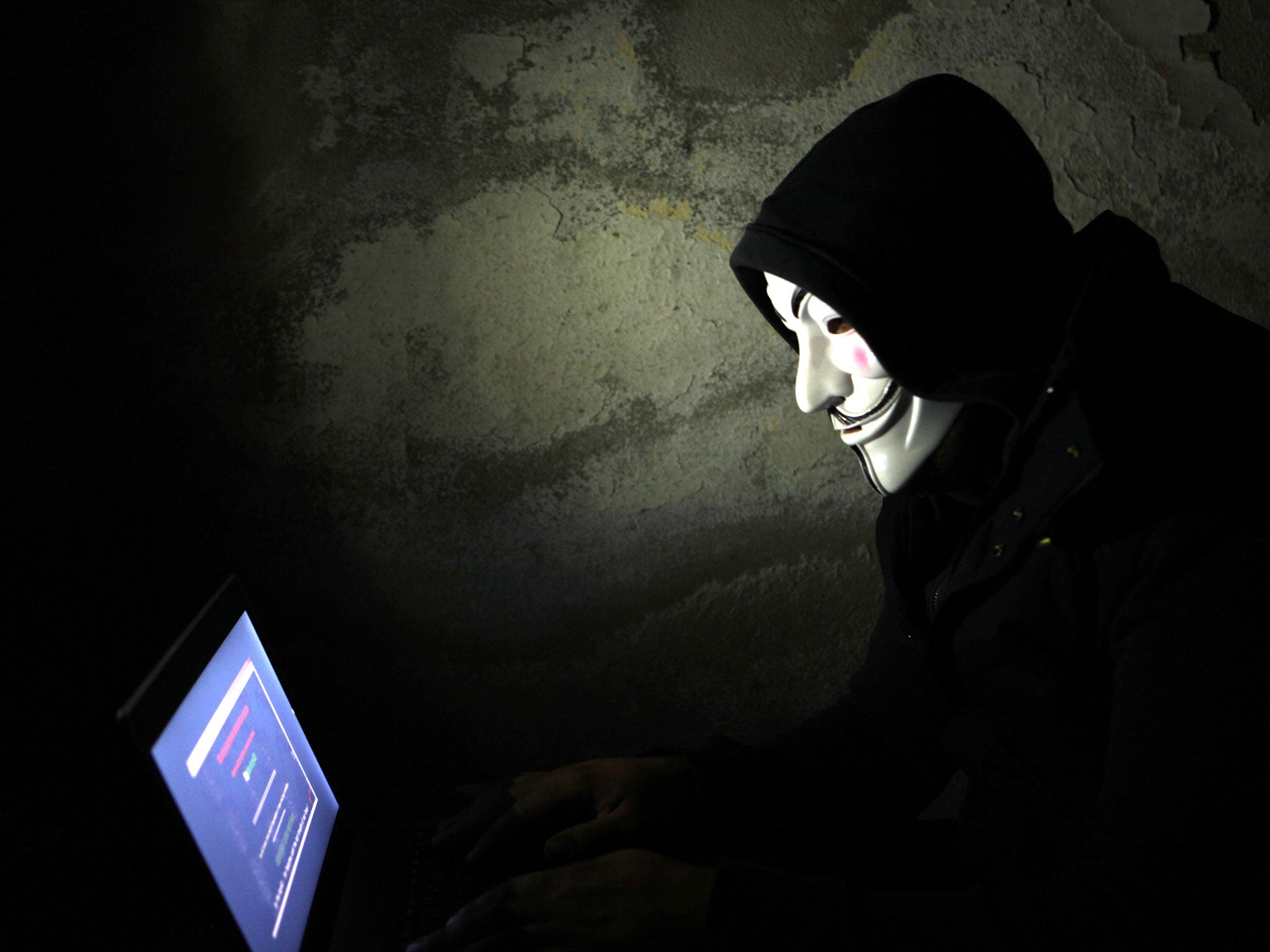Your support helps us to tell the story
From reproductive rights to climate change to Big Tech, The Independent is on the ground when the story is developing. Whether it's investigating the financials of Elon Musk's pro-Trump PAC or producing our latest documentary, 'The A Word', which shines a light on the American women fighting for reproductive rights, we know how important it is to parse out the facts from the messaging.
At such a critical moment in US history, we need reporters on the ground. Your donation allows us to keep sending journalists to speak to both sides of the story.
The Independent is trusted by Americans across the entire political spectrum. And unlike many other quality news outlets, we choose not to lock Americans out of our reporting and analysis with paywalls. We believe quality journalism should be available to everyone, paid for by those who can afford it.
Your support makes all the difference.A hacker group has released a cache of 13,000 passwords, usernames, and credit cards purporting to belong to users of popular web services including Amazon, Xbox Live and PlayStation Network.
The group says it is affiliated to the Anonymous internet movement, which has no central leadership, structure, or official membership.
The information was uploaded in a text file to a filesharing site called Ghostbin; it is no longer accessible.
Users of Amazon, Walmart, PlayStation Network and Xbox Live, as well as a number of pornography websites, are among those who could be affected.
In a message posted on Twitter, the group said it “did it for the lulz”, an online slang expression implying something which was done for general amusement.

The Independent approached Microsoft, Sony, and Amazon for comment but did not receive an immediate response from any of the companies.
Anyone who believes they are at risk should change their password on the suspect service and contact their credit card issuer.
The incident comes hours after the resolution of outages caused by cyber attacks on PlayStation Network Xbox Live system.
The systems had been down since Christmas Eve when a group known as Lizard Squad began a DDOS (distributed denial of service) attack on the gaming platforms.
Film company Sony Pictures was also targeted by hackers suspected of having links to the North Korean government.
Internet connections across North Korea itself have also been having major problems, which the country's government has blamed on the US government.

Join our commenting forum
Join thought-provoking conversations, follow other Independent readers and see their replies
Comments